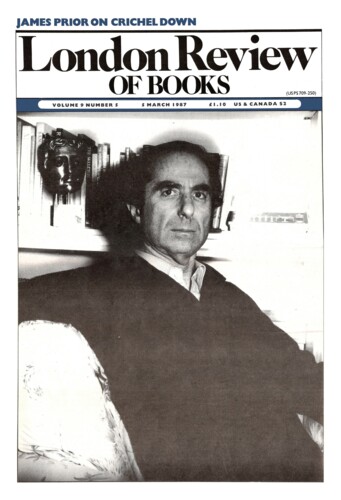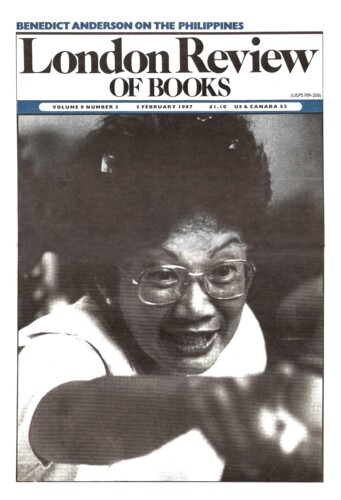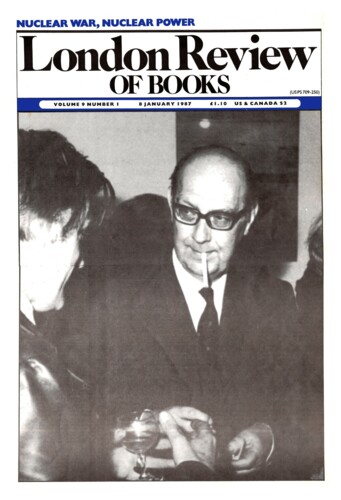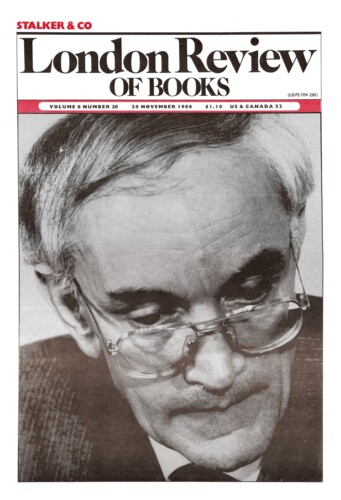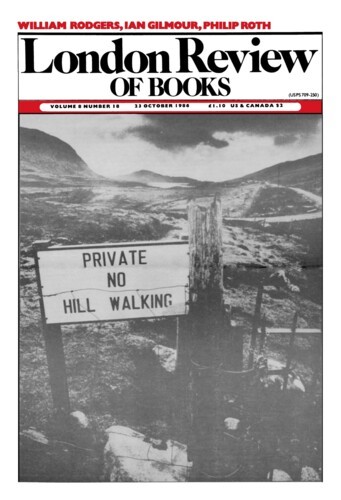Connections
D.A.N. Jones, 5 March 1987
‘We are not concerned with the very poor,’ wrote E.M. Forster, with heavy irony. ‘They are unthinkable, and only to be approached by the statistician or the poet.’ He was almost thirty when he wrote this, thinking about the unthinkable, in Howards End. Some fifteen years later he met (and apparently fell in love with) Police Constable Harry Daley, twenty years his junior. Forster’s ironic paragraph of 1910 had continued: ‘The story deals with gentlefolk, or with those who are obliged to pretend that they are gentlefolk.’ He was introducing an imagined character, Leonard Bast, who ‘stood at the extreme verge of gentility. He was not in the Abyss, but he could see it, and at times people whom he knew had dropped in, and counted no more’: therefore, the unlucky Bast ‘was obliged to assert gentility, lest he slipped into the Abyss where nothing counts’. Blundering through the ironies, we gather that the Abyss means the world of the working class, the world of most people, and that Forster was suggesting that it was impossible in 1910 for gentlefolk and novelists to connect with that large world – ‘that huge body of individuals that generally goes by the name of the People’, as Hazlitt put it. For some reason Forster was unable (or so he posed) to connect with anyone ‘lower’ than Leonard Bast, low-class, anxious for promotion, fearful that he might drop into the Abyss. It may have come as a relief from all these ironies when Forster connected with PC Daley in the Twenties – for Daley was a working-class man, quite as cultivated and artistic as Leonard Bast, but not at all anxious for promotion, quite happy with the Abyss, where all the good-looking people are. Daley was not a capitalist or a monetarist (nor, of course, a racist or a sexist): he was a looksist.’
